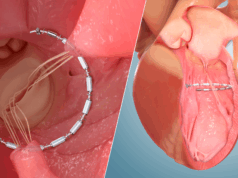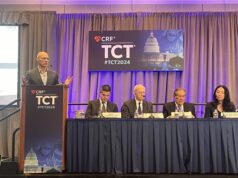 Johns Hopkins Medicine, Baltimore, USA, the Maryland Stem Cell Research Fund (MSCRF) and BioCardia have announced that the first patient has been treated in the pivotal Phase III CardiAmp clinical trial of a cell-based therapy for the treatment of ischemic heart failure that develops after a heart attack.
Johns Hopkins Medicine, Baltimore, USA, the Maryland Stem Cell Research Fund (MSCRF) and BioCardia have announced that the first patient has been treated in the pivotal Phase III CardiAmp clinical trial of a cell-based therapy for the treatment of ischemic heart failure that develops after a heart attack.
The first patient was treated at Johns Hopkins Hospital, Baltimore, USA, by a team led by Peter Johnston, a faculty member in the Department of Medicine and Division of Cardiology, and principal investigator of the trial at Johns Hopkins.
The investigational CardiAmp therapy is designed to deliver a high dose of a patient’s own bone marrow cells directly to the point of cardiac dysfunction, potentially stimulating the body’s natural healing mechanism after a heart attack.
The patient experience with CardiAmp therapy begins with a pre-procedural cell potency screening test. If a patient qualifies for therapy, they are scheduled for a bone marrow aspiration. A point-of-care cell processing platform is then utilised to concentrate the autologous bone marrow cells, which are subsequently delivered in a minimally-invasive procedure directly to the damaged regions in a patient’s heart.
“This cell-based therapy offers great potential for heart failure patients,” says Carl Pepine, professor and former chief of cardiovascular medicine at the University of Florida, Gainesville, USA, and national co-principal investigator of the CardiAmp trial. “We look forward to validating the impact of the therapy on patients’ quality of life and functional capacity in this important study.”
The CardiAMP Heart Failure Trial is a phase III, multi-centre, randomised, double-blinded, sham-controlled study of up to 260 patients at up to 40 centres nationwide, which includes an optional 10-patient roll-in cohort. The primary endpoint for the trial is a significant improvement in Six Minute Walk distance at 12 months’ post-treatment. Study subjects must be diagnosed with New York Heart Association (NYHA) Class II or III heart failure as a result of a previous heart attack. The national co-principal investigators are Pepine and Amish Raval of the University of Wisconsin, Madison, USA.













